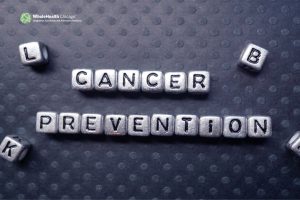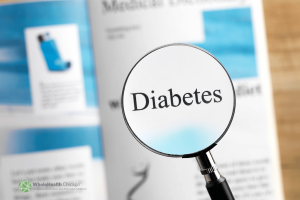You’ll like this story. Sometime in her eighties, my Aunt Hildy, who passed on at 94 or so, handed me a book, “Your Body’s Many Cries for Water”, by an Iranian physician with a totally unpronounceable name, Fereydoon Batmanghelidj, M.D. She told me it had changed her life. Dr. B. attributed virtually all chronic illnesses, […]
Tag: Health Tips
”Leaky Brain” the True Villain Behind “Brain Fog”
In the physiology and neurology classes of medical school, you learn a lot about the importance of something called the “blood brain barrier”. You’ve seen blood, of course. The bright red liquid carrying oxygen, nutrients, etc., etc. But your brain and spinal fluid should always be crystal clear, unless infected or inflamed. Separating blood from […]
YES! TELL ME HOW TO PREVENT CANCER!
After a certain age, every person, doctors included, fears getting cancer. Hearing words like, “I see something worrisome on your pancreas” or “this could be leukemia” is a moment you will remember forever. You leave the doctor’s office utterly stunned and wondering “how long have I got?” and asking yourself “what could I have done […]
HERBS AND MEDICATIONS FOR PRE-DIABETES AND DIABETES
Last week, when I mentioned discussing meds for pre-diabetes (HbA1c 5.7-6.4) or diabetes (6.5 and higher), I thought, “Wait a minute. Health Tip readers really don’t want meds. They do want to try lifestyle changes and herbs first.” As you may remember, your unhealthy, high carb-high sugar lifestyle is exhausting your pancreas, the source of […]
TELL ME SOMETHING I DON’T KNOW ABOUT PRE-DIABETES AND DIABETES
Last week, I talked about the importance of getting your act together if you learn you have pre-diabetes. This is when your body can’t handle excess sugar (glucose) and something has gone wrong with the control system, namely insulin, which lowers glucose, from your pancreas, which produces insulin. Remember, one adult in three is pre-diabetic […]
Turning the Winter Blues Around: A 10-Step Action Plan
The winter blues, also known as Seasonal Affective Disorder (SAD), usually begin when the days get shorter and the sky clouds over into perpetual gray. Many people with SAD dread late autumn because the clocks move back an hour and, in a single day, autumn twilight becomes dark night. Symptoms of SAD include depression, brain […]
PREDIABETES, DIABETES, AND YOU
When I was in medical school, I was repeatedly told, “If you learn ‘diabetes’, you’ll learn all you’ll need to be a good doctor.” I soon learned the basis of this cryptic sentence was that diabetes, whether Type 1 (childhood) or Type 2 (the far more common adult onset), if left unchecked, could go on […]
The Care and Feeding of Your Vaginal Microbiome
In our quest for well-being, we often overlook an unsung hero within us—the vaginal microbiome. While we commonly associate the term “microbiome” with our gut, it extends its influence to various corners of our body, including our skin and, yes, our vagina. This remarkable microbial community, consisting of bacteria, fungi, viruses, and even parasites, plays a pivotal role in maintaining our health. A balanced vaginal microbiome contributes to seamless digestion, a robust immune system, neurotransmitter production, and even longevity. Yet, in our well-intentioned efforts to care for our bodies, we may inadvertently disrupt this delicate ecosystem. From douching and smoking to antibiotics and unwashed sex toys, several factors can upset the harmonious balance of the vaginal microbiome. In the pages ahead, we will explore the intricacies of this often-overlooked aspect of women’s health, shedding light on the care and feeding of your vaginal microbiome, and offering insights into maintaining its delicate equilibrium.
Hydration and Longevity
Sometime in her eighties, my Aunt Hildy, who passed on at 94 or so, handed me a book, “Your Body’s Many Cries for Water”, by an Iranian physician with a totally unpronounceable name, Fereydoon Batmanghelidj, M.D. She told me it had changed her life. Dr. B. attributed virtually all chronic illnesses, premature death, and susceptibility to infections to the state of chronic dehydration we had allowed ourselves to endure by our insufficient intake of water.
Because Dr. B. also felt that water had curative properties, his work was literally shredded by conventional physicians here in the U.S., where he was regarded as a “crank” and a “quack”. The Wikipedia entry is especially brutal since it’s written by Stephen Barrett of Quackwatch, which (if you bother to read it) seems to have a special loathing for Dr. B. because of his claims that good hydration promotes longevity.
And so the years pass. Dr. B. dies at 74, although his books (he wrote seven more) all remain in print, apparently being read by the well-hydrated, healthy, and generally ignored by the desiccated conventional physicians.
Why are we Getting Cancer When We’re Younger?
Throughout my earlier years as a physician, cancer was considered a diagnosis of the elderly. A person survived infectious diseases of childhood, heart and lung issues of middle age, and then, blind to the risks of smoking and having no access to colonoscopies or CAT scans, would develop cancer in her seventies or eighties and […]









